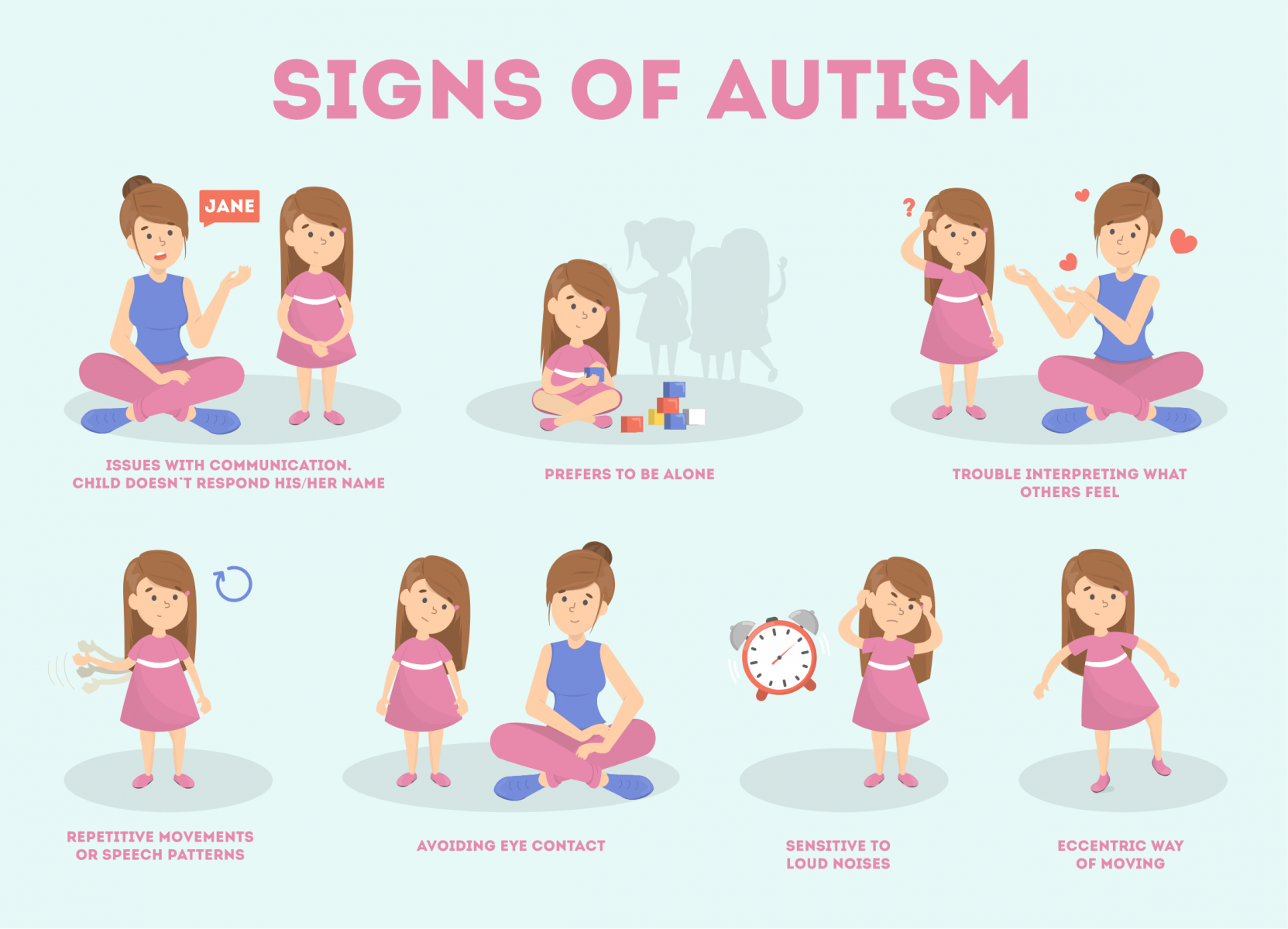Comprehending the Range: A Comprehensive Guide to Autism Awareness
Comprehending the Range: A Comprehensive Guide to Autism Awareness
Blog Article
Recognizing Autism: A Comprehensive Overview to Signs And Symptoms and indications
Autism Spectrum Problem (ASD) incorporates a broad range of qualities that can dramatically impact an individual's social communications and everyday performance. Recognizing these subtleties not only help caretakers and teachers in offering ideal assistance yet also promotes a much more inclusive environment for people with ASD.
Overview of Autism Spectrum Condition
Specifying Autism Spectrum Condition (ASD) involves acknowledging it as an intricate neurodevelopmental condition defined by a series of obstacles in social interaction, interaction, and behavioral patterns. The term "spectrum" shows the wide irregularity in signs and symptoms and their severity, which can vary significantly from one individual to one more. ASD normally shows up in early childhood years, although some individuals might not receive a diagnosis until later in life.
Aspects affecting the development of ASD consist of ecological elements and hereditary predispositions, although the specific reasons continue to be under examination. Diagnosis typically counts on behavior analyses, as there are no definitive medical tests for ASD. Early treatment is crucial and can considerably boost outcomes, concentrating on boosting communication skills, social communications, and adaptive actions.
Individuals with ASD may additionally show distinct staminas, such as phenomenal interest to information or certain locations of proficiency. Understanding the diverse nature of ASD is vital for promoting an inclusive setting that accommodates neurodiversity. Continued research is important for developing reliable treatments and assistance systems, allowing people with ASD to flourish and fulfill their potential within society.
Common Indications of Autism
Identifying the common indicators of Autism Range Disorder (ASD) is essential for very early identification and treatment. These indicators can differ widely in seriousness and presentation, but particular characteristics are regularly observed in people with ASD.
One of the most widespread indications is a significant trouble in preserving and developing eye call. Individuals might also show limited interest in social interactions and reveal a choice for singular play. Repeated behaviors, such as hand-flapping, rocking, or spinning things, frequently arise early in childhood years. In addition, some children may create rigorous routines and come to be distressed if these regimens are disrupted.
Sensory level of sensitivities are also typical; individuals may underreact or panic to sensory stimulations, such as sounds, lights, or appearances. autism. Language advancement can be irregular, with some kids showing postponed speech or utilizing language in uncommon ways, consisting of echolalia-- duplicating sentences or phrases listened to in other places
It is vital to note that not every individual with ASD will certainly present all these signs, and the degree of these behaviors can differ considerably. Early acknowledgment enables timely assistance and sources, enhancing the lifestyle for those on the spectrum.
Social Communication Difficulties
Social interaction obstacles are a hallmark of Autism Spectrum Disorder (ASD), affecting an individual's ability to engage successfully with others. These troubles can show up in numerous ways, consisting of difficulties in launching and keeping conversations, understanding social signs, and reacting properly in social communications.
Individuals with ASD might deal with nonverbal interaction, such as eye call, faces, and body language. This can bring about misunderstandings, as their communicative intent might not be correctly analyzed by others. In addition, they may locate it hard to comprehend the subtleties of tone and context, Clicking Here which are essential for effective interaction.
In team setups, people with ASD may really feel overwhelmed and may not understand just how to sign up with in discussions (autism). They might also exhibit irregular conversational patterns, such as monologuing regarding details interests without recognizing social reciprocity
Moreover, these challenges can result in social seclusion or problems in developing relationships, as peers might misinterpret their actions or interaction style. Comprehending these social interaction difficulties is critical for promoting supportive settings that advertise social abilities development and enhance the high quality of interactions for individuals on the autism range.
Sensory Feedbacks and level of sensitivities
Many people with Autism Spectrum Condition (ASD) experience increased sensory level of sensitivities that can considerably influence their lives. These sensitivities may manifest as over-responsiveness or under-responsiveness to sensory stimulations, including sounds, lights, appearances, preferences, and scents. An individual with ASD might discover everyday noises, such as a vacuum cleaner or crowded settings, extremely stressful, leading to anxiety or crises. Alternatively, some might exhibit an indifference to discomfort or severe temperature levels, which can pose security worries.
Sensory handling distinctions in individuals with ASD can likewise influence their capacity to participate in regular tasks and social communications. A child who is sensitive to touch may resist physical love or stay clear of certain clothing fabrics. A choice for specific appearances or tastes can limit nutritional alternatives and produce challenges during mealtimes.
Recognizing these sensory level of sensitivities is necessary for acknowledging the unique experiences of individuals with ASD. Awareness of their sensory accounts can foster much better communication and support methods, developing an atmosphere that suits their demands and enhances their lifestyle. Inevitably, acknowledging sensory sensitivities is a crucial component of understanding the wider range of autism.

Sustaining Individuals With Autism
Effective support for individuals with Autism Spectrum Condition (ASD) is essential for boosting their general wellness and promoting freedom. Support approaches ought to be customized to meet the special needs of each individual, considering their strengths and obstacles.

Social skills training can additionally play a critical duty. autism. Engaging people in group activities find this or role-playing circumstances can improve their capability to browse social interactions. Furthermore, it is important to inform family participants, caregivers, and peers regarding ASD to foster a inclusive and helpful neighborhood
Conclusion
To conclude, an extensive understanding of Autism Range Problem is important for acknowledging its signs and indications. Early recognition of typical qualities, such as social interaction obstacles and sensory sensitivities, enables educators and caretakers to implement effective treatments. By promoting improved communication and social skills, individuals with autism can navigate their environments much more successfully. Ultimately, increased recognition and assistance can substantially enhance the top quality of life for those impacted by ASD.
Autism Range Condition (ASD) encompasses a vast range of characteristics that can substantially impact an individual's social interactions and everyday performance.People with ASD might struggle with nonverbal interaction, such as eye call, facial expressions, and body language.Several individuals with Autism Range Disorder (ASD) experience heightened sensory level of sensitivities that can substantially impact their daily lives.Sensory processing distinctions in people with ASD can likewise influence their capacity to involve in regular tasks and social interactions.Recognizing these sensory sensitivities is essential for acknowledging the special experiences of people with ASD.
Report this page